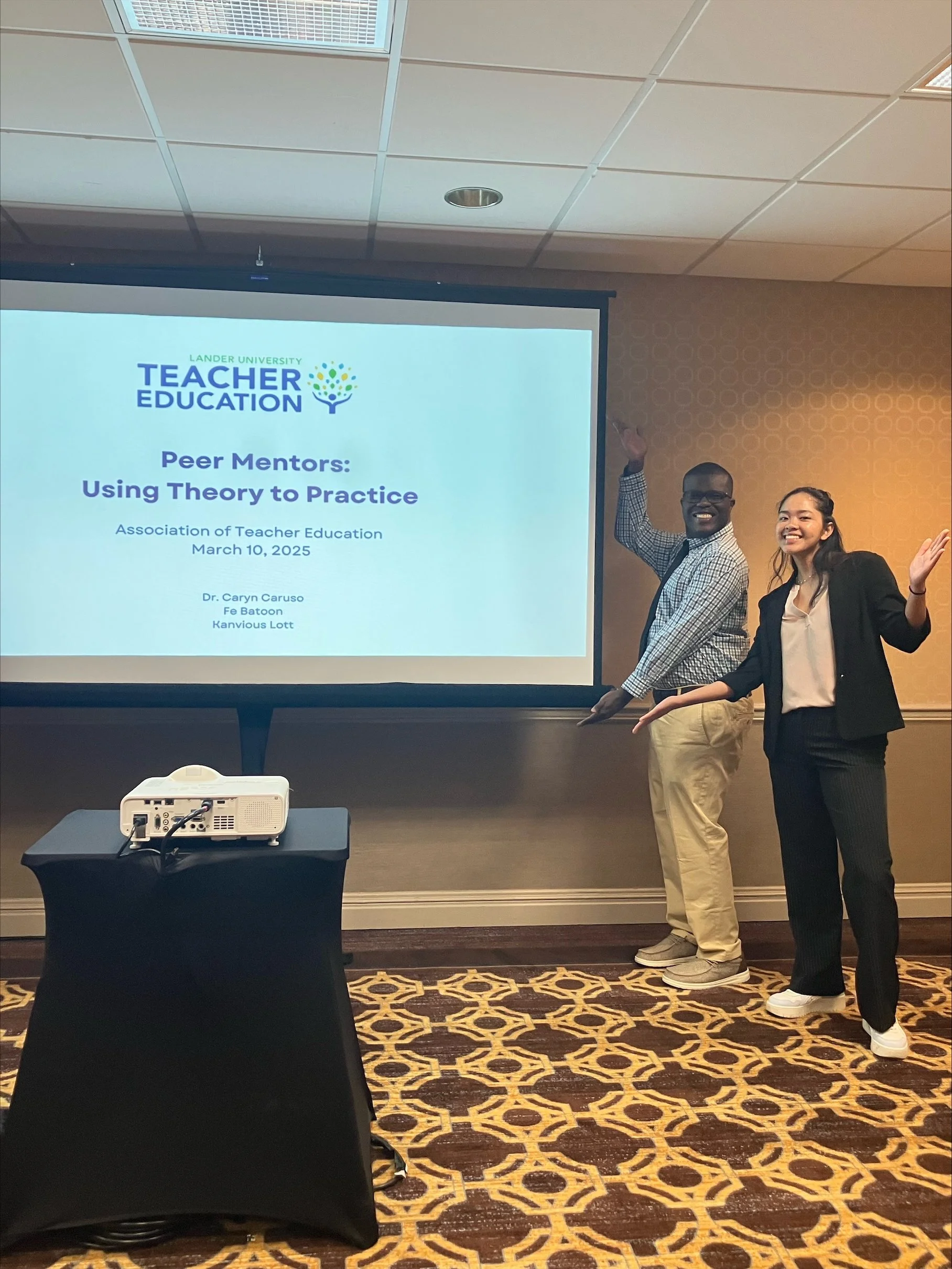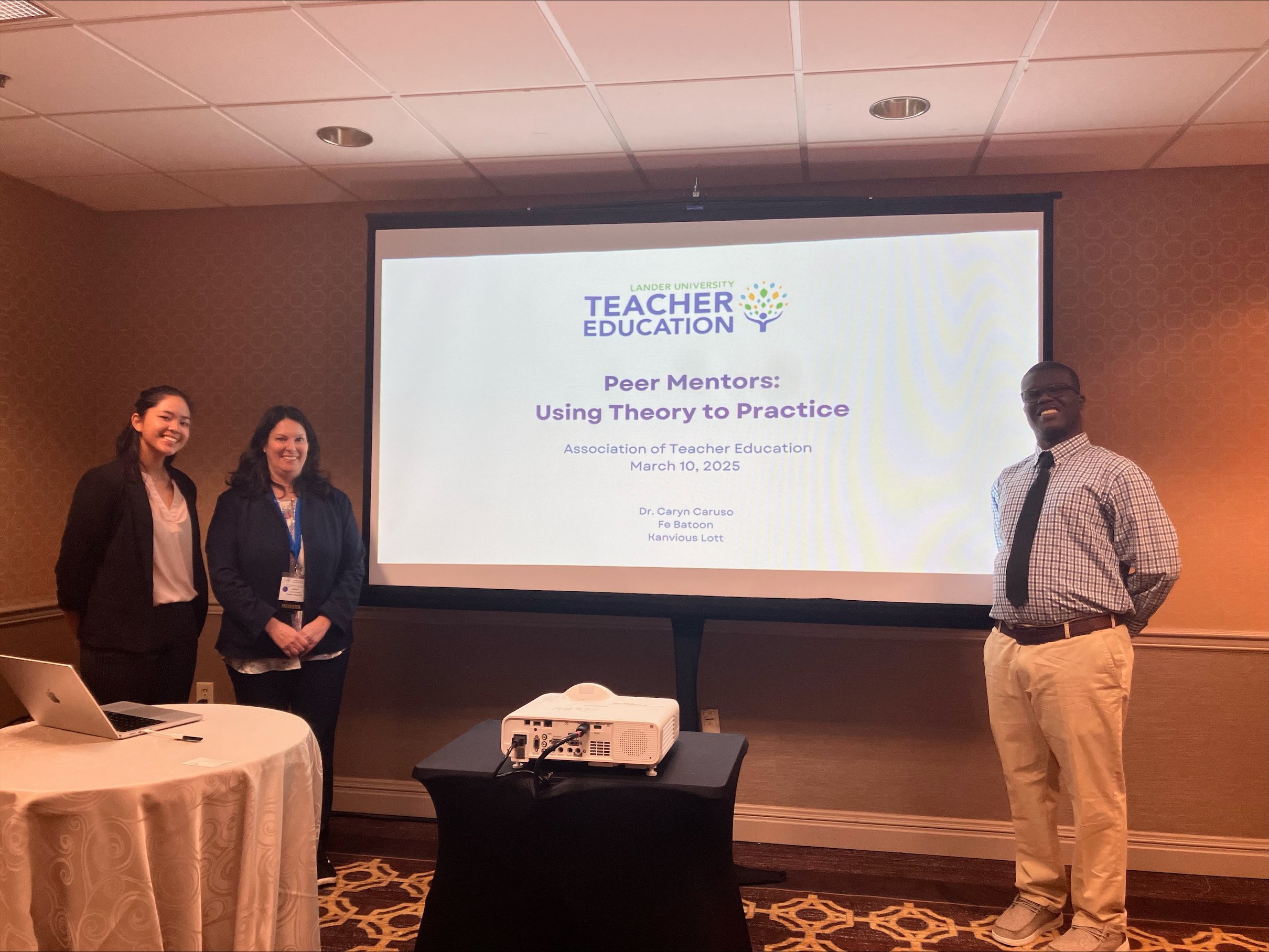Fe Eugenie Batoon: Availability over Authority: Lessons from a Novice Leader
“For your final project, create six slides with each slide containing one of these topics: your dream classroom set up, routines/procedures you will use, classroom management tools you liked and can use, differentiation ideas, and an interesting topic you learned,” I texted in my mentee group chat.
I grinned and thought to myself how great of a peer mentor I was. Dr. Caruso may have forgotten to write up the instructions, but I had her back.
Later that week, I had a meeting with Dr. Caruso and the other peer mentors. She told us that some of our mentees were really stressed about the final project. They were under the assumption that they had to create an elaborate presentation. She continued to tell us that she purposefully didn’t give them detailed instructions so that they could present the information how they wanted to.
I cringed. I was the one who gave them that impression. I stressed them out. I thought I was being helpful, but I was the one who didn’t understand the goal of the assignment. Now, I would have to swallow my pride, and type in the group chat, “Sorry guys! You don’t actually have to do it like how I would. I was just projecting my own learning style onto all of you.”
I didn’t actually text that, but I might as well have. I hate being wrong. Moreso, I hate admitting when I’m wrong. Yet, this failure turned into one of the best lessons on leadership I’ve ever had.
In Spring 2024, I was a peer mentor for the teacher education department. All freshmen education majors complete a field experience class where they observe a teacher at a local elementary school for the semester. Once a month, they have to attend a seminar with over 60 students. The problem was that this class only had one professor – Dr. Caruso. With the overwhelming number of students, Dr. Caruso founded the peer mentorship program with the goal of increasing the quality of the freshmen students’ class experience. At the same time, it gave junior and senior education majors an opportunity to practice leadership skills. Throughout the semester, I guided ten students leading small group discussions, answering any questions they had, sharing my own field experiences, and providing feedback on their assignments. I also worked with other peer mentors to see how we could all improve the course.
At first, it was hard for me to connect with my group, but as time went on, I gained their trust. I didn’t understand why they weren’t talking a lot in small groups because my own peers were chatterboxes in the past. What I didn’t realize was that these freshmen education majors were still new to the culture of our department. They were still learning how to be comfortable with constantly sharing their ideas and perspectives on things in the classroom. I had to give them time to get to know me and each other.
One afternoon, I was studying in the education lounge when one of my mentees was working on a presentation for her honors class. She was muttering to herself and going through each slide. She was sitting near me, so I asked, “Would you like to practice your presentation on me?” Her eyes lit up. “That would be great actually. I’m not sure if I can explain it right to my class, ” she said. She gave me a quick rundown on what her presentation was about. If I remember it correctly, I think it was about the connection between a comedian and an endangered pet? Regardless of my awful memory, I assured her that she did great, and this short interaction helped me connect with her during the seminar and the rest of the semester.
Being a great leader is more often about being available when people need you rather than giving out orders. I had to be patient in gaining the trust of my mentees, being aware of situations where I could help them even if it was outside of regular class hours. I couldn’t force them to talk to me. We needed time and trust to build that relationship and culture within our group.
Leadership is also about catering to the specific needs of those you serve. I failed at providing my mentees with the autonomy to create their final projects. I was lucky to have Dr. Caruso as a safety net, because I didn’t handle that situation properly. After reading their final projects, I realized that my mentees were so creative and insightful. They didn't need me to spell it out for them. If I had forced my own way, I would have missed out on seeing their different takes on the project.
Fast forward to Spring 2025, I’ve shared my peer mentorship experiences at state and national teaching conferences. I also completed my student-teaching at a local elementary school, and successfully led an organization that averages a meeting turnout of 50 student-athletes each week. At the conferences, I was always asked how my peer mentorship impacted the rest of my life. I grin from ear to ear knowing that it was my own professor’s leadership that started this whole process for me.
Dr. Caruso’s decision to let others take the lead in her class empowered me to provide leadership opportunities for my own students and peers. Leadership is not about being in the spotlight. Effective leadership emphasizes reliability, relationship-building, and empowering others to take the lead. These are the intangibles I took from my peer mentorship experience and the lessons I will continue to apply as I start my professional teaching career in a few months.
Fe Eugenie Batoon is a senior special education major at Lander University. She completed her breakaway as a peer mentor and conference presenter for the Teacher Education Department. After her Spring 2025 graduation, she plans to be a special education resource teacher in the Mid-Atlantic region.

